Health
Health is a state of complete physical, mental, and social well-being and not merely the absence of disease or infirmity. It encompasses the overall well-being of an individual, including their physical, mental, and social aspects.
Key Aspects of Health
- Physical Health: This refers to the overall condition of the body, including factors such as fitness, nutrition, and the absence of illness or disease.
- Mental Health: Mental health relates to cognitive, emotional, and psychological well-being. It involves how individuals think, feel, and behave.
- Social Health: Social health involves the ability to form meaningful relationships, interact with others, and participate in social activities within the community.
Factors Influencing Health
Several factors can influence an individual's health:
- Lifestyle Choices: Diet, exercise, and habits such as smoking and alcohol consumption can significantly impact health.
- Environmental Factors: The quality of the environment, including air and water quality, can affect health.
- Genetics: An individual's genetic makeup can predispose them to certain health conditions.
- Social and Economic Factors: Socioeconomic status, access to healthcare, and support systems can influence health outcomes.
Importance of Health
Good health is essential for overall well-being and quality of life. It allows individuals to lead productive and fulfilling lives, pursue their goals, and contribute to society. Additionally, good health reduces the risk of illness and chronic diseases, leading to lower healthcare costs and improved longevity.
Study Tips for Health
To excel in understanding health, students can follow these study tips:
- Understand the key aspects of health and their interrelationships.
- Explore the factors that influence health and their impact on individuals and communities.
- Stay updated on current health issues and advancements in healthcare.
- Engage in discussions and debates on health-related topics to gain diverse perspectives.
- Participate in physical activities and practice healthy lifestyle habits to experience the benefits firsthand.
◂Science Worksheets and Study Guides Seventh Grade. Cell Reproduction
Study Guide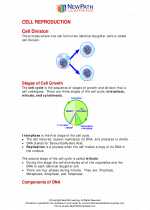 Cell Reproduction
Cell Reproduction  Activity Lesson
Activity Lesson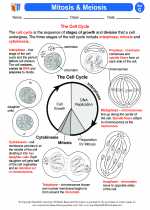 Mitosis & Meiosis
Mitosis & Meiosis  Worksheet/Answer key
Worksheet/Answer key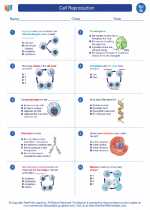 Cell Reproduction
Cell Reproduction  Worksheet/Answer key
Worksheet/Answer key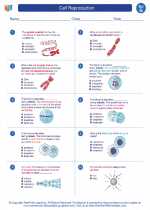 Cell Reproduction
Cell Reproduction  Worksheet/Answer key
Worksheet/Answer key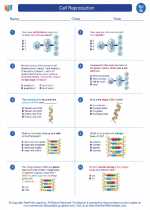 Cell Reproduction
Cell Reproduction  Vocabulary/Answer key
Vocabulary/Answer key Cell Reproduction
Cell Reproduction  Vocabulary/Answer key
Vocabulary/Answer key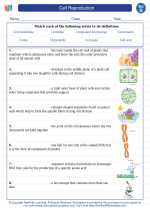 Cell Reproduction
Cell Reproduction  Vocabulary/Answer key
Vocabulary/Answer key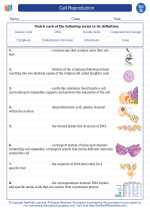 Cell Reproduction
Cell Reproduction  Vocabulary/Answer key
Vocabulary/Answer key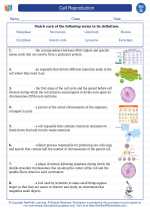 Cell Reproduction
Cell Reproduction  Vocabulary/Answer key
Vocabulary/Answer key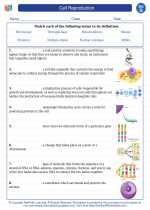 Cell Reproduction
Cell Reproduction  Vocabulary/Answer key
Vocabulary/Answer key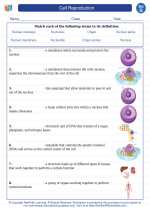 Cell Reproduction
Cell Reproduction  Vocabulary/Answer key
Vocabulary/Answer key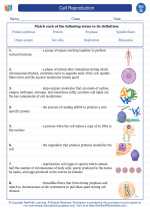 Cell Reproduction
Cell Reproduction  Vocabulary/Answer key
Vocabulary/Answer key Cell Reproduction
Cell Reproduction 

 Activity Lesson
Activity Lesson
 Worksheet/Answer key
Worksheet/Answer key
 Worksheet/Answer key
Worksheet/Answer key
 Worksheet/Answer key
Worksheet/Answer key
 Vocabulary/Answer key
Vocabulary/Answer key
 Vocabulary/Answer key
Vocabulary/Answer key
 Vocabulary/Answer key
Vocabulary/Answer key
 Vocabulary/Answer key
Vocabulary/Answer key
 Vocabulary/Answer key
Vocabulary/Answer key
 Vocabulary/Answer key
Vocabulary/Answer key
 Vocabulary/Answer key
Vocabulary/Answer key
 Vocabulary/Answer key
Vocabulary/Answer key

The resources above cover the following skills:
LIFE SCIENCE
From Molecules to Organisms: Structures and Processes
Gather and synthesize information to explain how prokaryotic and eukaryotic cells differ in structure and function, including the methods of asexual and sexual reproduction.